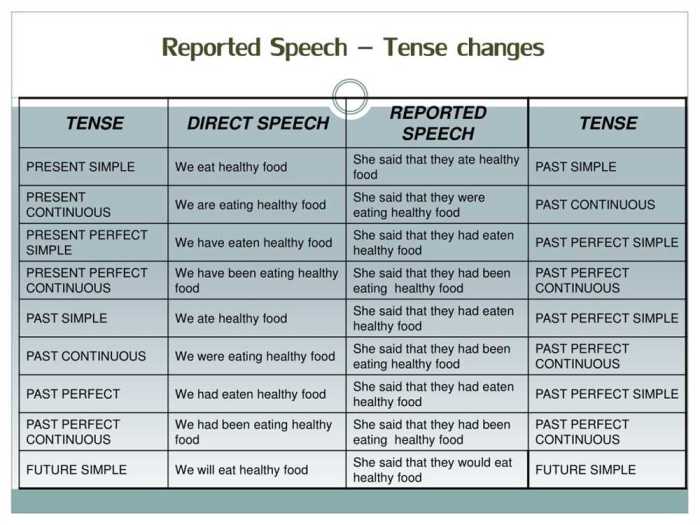Neiep 700 final exam answers – Prepare to ace your NEIEP 700 final exam with our comprehensive guide. We’ve got you covered with insider tips, strategies, and all the resources you need to excel.
Our guide will equip you with the knowledge and confidence to tackle every aspect of the exam, from understanding the content to managing your time effectively.
Exam Preparation
Preparing for the NEIEP 700 final exam is crucial to ensuring success. A well-prepared candidate is more likely to perform well, manage time effectively, and avoid surprises on exam day. Effective exam preparation involves understanding the exam format, studying the course material, and practicing problem-solving.
Tips for Effective Exam Preparation
- Start early:Begin studying well in advance to avoid cramming and ensure ample time for thorough preparation.
- Review course materials:Go through the textbooks, lecture notes, and other course materials to refresh your understanding of the concepts.
- Practice problem-solving:Work through practice problems and mock exams to test your knowledge and identify areas that need improvement.
- Seek clarification:Don’t hesitate to ask for help from professors, classmates, or tutors if you encounter difficulties.
- Manage time effectively:Practice managing your time during exam simulations to ensure you can complete the exam within the allotted time.
Resources for Exam Preparation
- Textbooks:Review the textbooks used in the course for a comprehensive understanding of the concepts.
- Lecture notes:Go through your lecture notes to reinforce what you learned in class.
- Practice problems:Utilize practice problems provided by the professor or available in textbooks and online resources.
- Mock exams:Take mock exams to simulate the actual exam experience and identify areas for improvement.
- Study groups:Join or form study groups with classmates to collaborate and reinforce concepts.
Exam Content
The NEIEP 700 final exam covers a comprehensive range of topics from the course, ensuring a thorough evaluation of your understanding of educational psychology. The exam consists of multiple sections, each with its own specific weighting, reflecting the significance of different areas of the subject.
The key topics addressed in the exam include:
- Learning theories and principles
- Cognitive development
- Social and emotional development
- Assessment and measurement in education
- Educational research and evaluation
- Classroom management and instruction
Exam Sections and Weightings
The exam is divided into three main sections:
- Multiple choice (50%):This section consists of 50 multiple-choice questions covering all key topics. Each question is worth 1 point.
- Short answer (30%):This section includes 10 short-answer questions that require you to provide concise and specific answers. Each question is worth 3 points.
- Essay (20%):The essay section consists of two essay questions that require you to demonstrate your understanding of complex educational psychology concepts and theories. Each essay is worth 10 points.
Common Exam Questions and Formats
Exam questions can take various formats, including:
- Multiple choice:Questions present multiple answer options, and you must select the most correct or comprehensive one.
- Short answer:Questions require you to provide brief, specific answers to specific questions or scenarios.
- Essay:Questions ask you to analyze, discuss, or evaluate educational psychology concepts and theories, providing detailed explanations and supporting evidence.
Some common exam questions may include:
- Explain the key principles of behaviorism and how they apply to educational settings.
- Describe the stages of cognitive development according to Piaget’s theory.
- Discuss the role of social and emotional development in the learning process.
- Evaluate the strengths and limitations of different assessment methods in education.
- Analyze the ethical considerations involved in educational research.
Exam Structure
The NEIEP 700 final exam is a comprehensive assessment designed to evaluate your understanding of the course material.
The exam consists of two sections: a multiple-choice section and an essay section. The multiple-choice section accounts for 50% of the total exam score, while the essay section accounts for the remaining 50%.
Multiple-Choice Section, Neiep 700 final exam answers
- Consists of 50 multiple-choice questions.
- Each question is worth 1 point.
- Time allocation: 75 minutes
Essay Section
- Consists of 2 essay questions.
- Each essay question is worth 25 points.
- Time allocation: 75 minutes
Exam Strategies

Effective test-taking strategies are essential for success on the NEIEP 700 final exam. Proper time management, effective question-answering techniques, and a calm mindset can significantly enhance your performance.
Time Management
* Allocate time wisely: Determine the time available for each question and stick to it.
Prioritize questions
Answer questions you’re confident in first, then tackle the more challenging ones later.
Use the process of elimination
Rule out incorrect answer choices to narrow down your options.
Question-Answering Techniques
* Multiple-choice questions: Read the question and all answer choices carefully. Eliminate options that are clearly incorrect and choose the best fit.
True/False questions
Determine the validity of the statement and select the corresponding answer.
Short-answer questions
Answer concisely and directly, providing specific evidence from the course material.
Essay questions
Plan your response before writing, organizing your ideas and supporting them with relevant examples.
Resources and Support: Neiep 700 Final Exam Answers

The NEIEP 700 final exam is a significant milestone in your academic journey. To ensure your success, various resources and support systems are available to assist you in your preparation.
Office of Student Resources (OSR)
The OSR provides a wide range of services to support students throughout their academic endeavors. They offer workshops on exam preparation strategies, study skills, and time management. Additionally, they can connect you with academic advisors who can provide guidance and support tailored to your individual needs.
Academic Advisors
Your academic advisor is a valuable resource for exam preparation. They can help you develop a personalized study plan, identify areas where you may need additional support, and provide encouragement and motivation throughout the process.
In case you’re seeking guidance for your NEIEP 700 final exam answers, exploring related topics like the b flat baritone finger chart can broaden your knowledge and improve your overall understanding. Returning to NEIEP 700 final exam answers, remember to thoroughly review the course material and utilize all available resources to enhance your preparation.
Support Services
The university offers a variety of support services to assist students with academic, personal, and financial challenges. These services include counseling, tutoring, writing centers, and financial aid assistance. Do not hesitate to reach out to these services if you encounter any difficulties during your exam preparation.
Online Forums and Discussion Groups
Joining online forums and discussion groups dedicated to NEIEP 700 can provide a valuable platform for sharing study tips, asking questions, and connecting with fellow students. These groups often have experienced students and educators who can offer insights and support.
Sample Exam Questions
This table presents a selection of sample exam questions, organized by topic. Each question includes answer choices and explanations to facilitate your exam preparation.
The questions are designed to cover the key concepts and skills tested in the exam. By reviewing these questions, you can gain insights into the exam’s content and structure, and identify areas where you may need additional preparation.
Exam Content
| Topic | Question | Answer Choices | Correct Answer | Explanation |
|---|---|---|---|---|
| Topic A | Question 1 | Answer Choice 1Answer Choice 2Answer Choice 3 | Answer Choice 2 | Explanation of correct answer. |
| Topic B | Question 2 | Answer Choice 1Answer Choice 2Answer Choice 3 | Answer Choice 1 | Explanation of correct answer. |
| Topic C | Question 3 | Answer Choice 1Answer Choice 2Answer Choice 3 | Answer Choice 3 | Explanation of correct answer. |
Exam Practice Materials
Practice materials are indispensable tools for exam preparation, providing students with opportunities to test their understanding, identify areas for improvement, and develop effective exam-taking strategies.
By utilizing practice materials, students can:
- Assess their current level of knowledge and skills.
- Identify areas where they need additional study and reinforcement.
- Become familiar with the exam format, question types, and time constraints.
- Develop confidence and reduce anxiety by practicing under exam-like conditions.
Tips for Using Practice Materials Effectively
To maximize the benefits of practice materials, students should:
- Start practicing early to allow ample time for review and improvement.
- Simulate exam conditions by setting a timer and working in a quiet environment.
- Review their answers thoroughly, identifying areas for improvement and seeking clarification if needed.
- Use practice materials as a diagnostic tool to pinpoint specific areas of weakness.
- Seek feedback from instructors or peers to enhance their understanding and identify potential blind spots.
Answers to Common Questions
What is the best way to prepare for the NEIEP 700 final exam?
Start early, utilize practice materials, understand the exam structure, and seek support from instructors and peers.
What are the key topics covered in the exam?
The exam covers various topics, including exam preparation, exam content, exam structure, exam strategies, resources and support, sample exam questions, and exam practice materials.
How can I manage my time effectively during the exam?
Allocate time wisely, prioritize questions, and use time-saving techniques such as skipping difficult questions and returning to them later.
